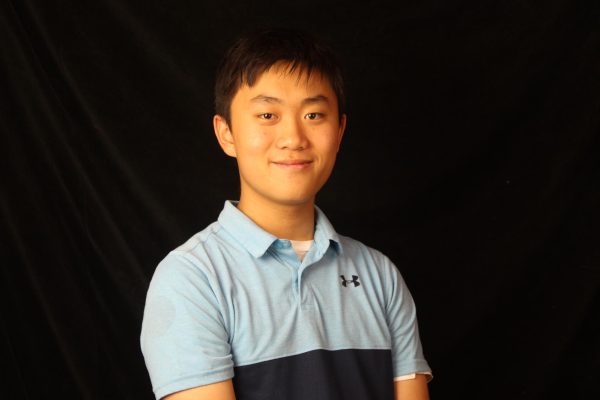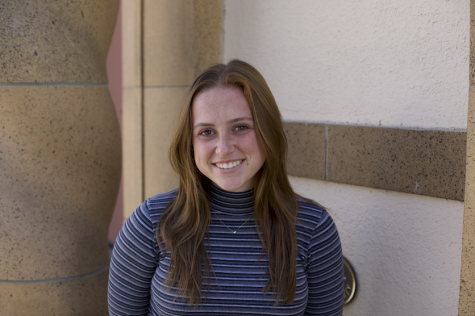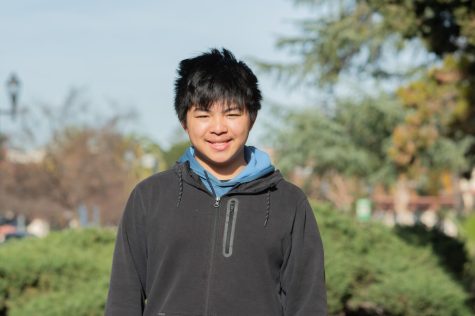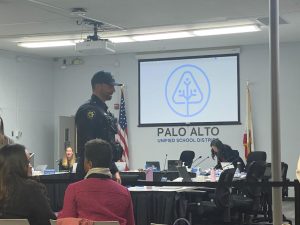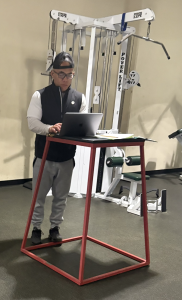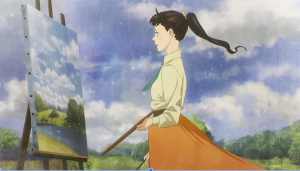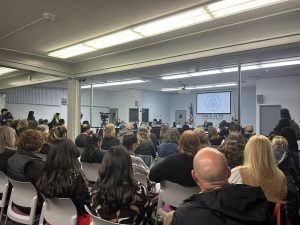Elective spotlight: Astrophysics
May 26, 2022
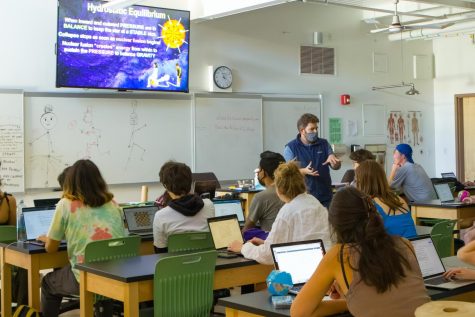
What conditions are necessary for life? Does life exist outside the solar system? What do black holes look like? Through taking Astrophysics, students at Palo Alto High school learn how to answer questions like these and dive into the concepts and principles governing the structure and behavior of the universe.
Astrophysics is a one-year science course offered to juniors and seniors who have completed Biology and either Chemistry or Physics. According to Astrophysics teacher Josh Bloom, who is handing his course off to Michael Lupoli as next year he assumes a job as principal of Lydian Academy, the course explores the origins of our existence on a larger scale regarding space and time.
“I have found in over 20 years of teaching this course that one of the most valuable things this course offers is perspective,” Bloom said. “It puts our concerns and worries in their place. There are little things in our lives that often feel very big to us, but when we begin to realize how connected we all are to each other and to something much larger than all of us, it helps us recognize that some of those big things aren’t so big after all.”
According to senior Franklin Wang, he enjoys taking Astrophysics as he is able to learn about mind-blowing concepts and theories related to the universe.
“I loved getting to explore the really strange and weird parts of our universe,” Wang said. “In Einstein’s theory of relativity, we learned how moving objects move slower through time from another point of view, and how we can figure all of that out by just assuming that light travels the same speed no matter what.”
Astrophysics allows students to explore physical reality at scales beyond what we experience on an everyday basis and see how the basic laws of physics unfold when we explore the universe at the most extreme scales of size, mass, and velocity. Students also get to engage in fun projects, including some of which are displayed to the public.
“I would say that I enjoyed making the library display boards the most,” Wang said. “I made one about black holes, and it was fun to visualize and diagram out the different properties of black holes, along with diving into those topics.”
According to Bloom, although this course seems intimidating to many, it is highly recommended to all students who fulfill the prerequisites.
“Everyone [should take Astrophysics] because everyone is human, everyone is curious, everyone is hungry for meaning, significance, and connection,” Bloom said. “This course does not require anything but a willingness to explore the nature of our existence more deeply. Everyone has something to gain from the experience of being in this class.”
According to Bloom, Astrophysics is taught in a hands-on fashion. Tests are more about innovativeness rather than knowing the material verbatim, thus making the class more enjoyable and applicable to real-life circumstances.
“Most of the assessments in this course are more creative and project-based,” Bloom said. “Each in their own way challenges students to share the depth, detail, and quality of their understanding in fun and engaging ways with others.”


